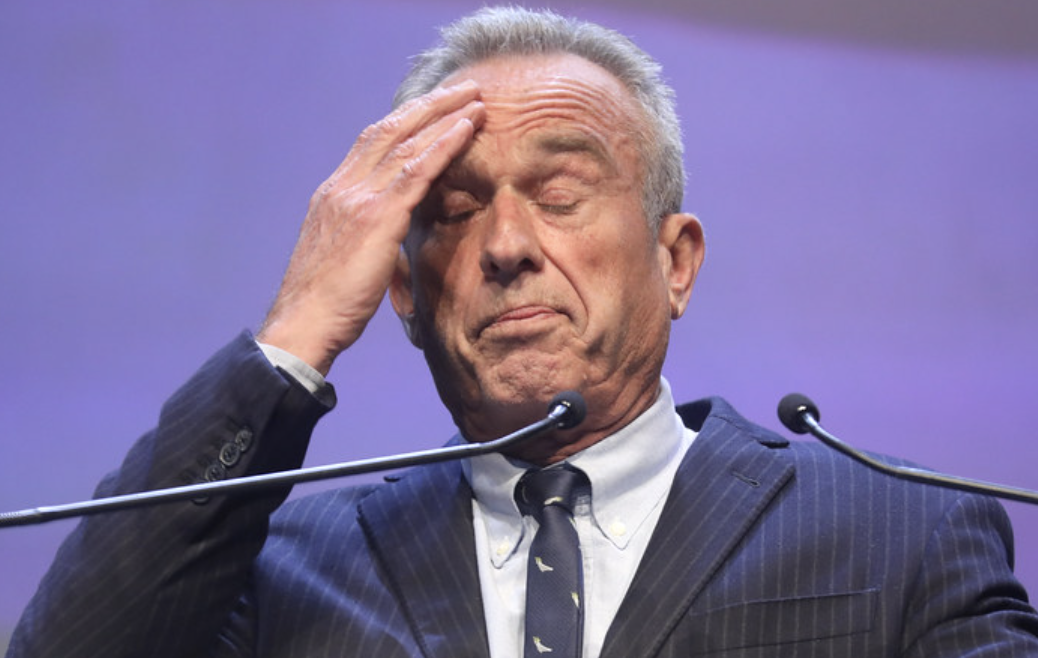RFK Jr. Loses Secret Service Protection After Ending Campaign

The U.S. Secret Service (USSS) ceased providing protection to Robert F. Kennedy Jr. on Monday, just days after he suspended his bid for the 2024 presidency.
A Kennedy spokesperson confirmed the development to CBS News, noting that securing USSS protection had been a lengthy process for Kennedy, as his initial requests earlier in the campaign were denied.
Despite the assassination attempt on former President Donald Trump in July, President Biden did not take steps to ensure Kennedy received Secret Service protection.
“In light of this weekend’s events, the president has directed me to work with the Secret Service to provide protection to Robert Kennedy, Jr. Both prior to and after the events of this past weekend,” Homeland Security Secretary Alejandro Mayorkas stated shortly after the attack on Trump, according to Fox News.
RFK Jr. revealed on Sunday during an interview with Fox News that he was withdrawing his name from ballots in crucial swing states to impact Vice President Kamala Harris’s chances in November.
On Friday, Kennedy officially ended his independent run for the presidency and threw his support behind former President Donald Trump. He cited what he believed was a rigged race against him and the voters as a key reason for requesting to be removed from the Pennsylvania ballots.
During an interview on “Fox News Sunday,” host Shannon Bream questioned Kennedy about his support for Trump. The former candidate explained that he would withdraw his name from ballots in states crucial to Harris’s path to securing 270 electoral votes in November.
Below is a transcript of their exchange, via Grabien:
BREAM: Have you all negotiated over or talked about a cabinet position, another position within a Trump government in exchange for your endorsement?
KENNEDY: No. There there’s been no commitments. But you know, I met with President Trump, with his family, with his close advisors, and we just made a general commitment that we were going to work together.
BREAM: What about the states where you’re trying to get off of a number of swing state ballots to say, I’m going to stay on a number of state ballots, but in these swing states, I’m going to try to withdraw myself and ask my supporters, or at least you’re telling them, think about supporting President Trump. Did you negotiate over which states you would try to withdraw from?
KENNEDY: Yeah, I mean, we all know which states they were. They’re basically 10 swing states where my presence in the race would have helped Vice President Harris and would have harmed President Trump. So I’m going to get off the ballot in other states, and then we’re going to stay on the ballot in 30 states. And, you know, I’m encouraging people to vote for me in those states, those are states –they’re all red or all blue states where their votes are not going to change the outcome of the race. And, and in the in the states where I would have been a spoiler, I’m going to get out. It was about 10 states.
A leading pollster highlighted that RFK Jr.’s decision to suspend his campaign and back Trump could pose significant challenges for Harris.
Although Kennedy was polling at just around 5 percent nationwide, in a close race between the two major candidates, that small percentage could be decisive, according to the New York Post.
“Most of Kennedy’s left-leaning support had already dispersed to Harris,” Cook Political Report senior editor and elections analyst Dave Wasserman told The Post. “So this could represent a meaningful benefit for Trump.”
“We’re talking probably a fraction of a point in our survey from August in battleground states,” he continued. “Forty-six percent of RFK supporters went with Trump in a two-way race, 26% went with Harris and Kennedy’s support had collapsed from 8% to 5% nationally.”
“Campaigns would spend hundreds of millions of dollars for a fraction of a point given how tight the margins are in these battleground states,” Wasserman added, referencing the narrow margins in 2020, particularly in Arizona and Georgia.
“RFK’s endorsement won’t move all his supporters to Trump,” he said. “We’re in a very volatile environment right now and it could remain that way through the election.”
Chris Lane, a pollster for Cygnal, noted that “among swing voters who will ultimately decide this election, 16% indicated they were going to vote for RFK.”
“With margins in battleground states being razor-thin, that 16% could represent the difference between winning and losing a state,” Lane said. “If RFK encourages his supporters to vote for Trump, it could have a massive impact and change the calculus for both Trump and Harris, especially in battleground states.”
“Add in the fact that those 16% are more center-right than anything, and will ultimately add to Trump’s ballot share,” Lane explained. “Our data shows 4:1, these swing voters were more likely to call themselves conservatives than liberals.”
Even anti-Trump pollster Frank Luntz suggested that RFK’s endorsement could influence the election outcome.
“It’s probably worth about 1% for Trump and that 1% could be everything if it’s in the swing states. In the end, the reason why Kennedy was drawing 10, 12, even as high as 14% is because he was taking votes away from Joe Biden. Joe Biden’s gone. Kamala Harris has replaced him, and [RFK’s] vote collapsed down to about 4 or 5% and what’s left is a Trump vote,” Luntz said during an appearance on NewsNation, speaking with host Leland Vittert.
“Some of them are simply not going to participate in November. Roughly two to one, the ones who are remaining will vote for Trump over Harris and that’s worth a single percent and that single percent can make the difference in Pennsylvania, Michigan, and Wisconsin,” Luntz concluded.